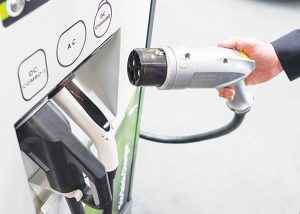It’s about time investors were hit with the reality about electric vehicle startups. But what do tanking shares mean for the much-hyped, cheap capital-sucking EV makers that took the market by storm last year?
Stocks of EV upstarts, from New York-listed, Chinese firms such as Nio Inc, Xpeng Inc and Li Auto Inc to their American peers Rivian Automotive Inc and Lordstown Motors Corp, have lost their sheen in recent weeks, exacerbated by a broader turn in sentiment and rising rates. Turns out making fancy, future-forward cars is kind of hard.
It’s even tougher when costs to produce vehicles are surging. Manufacturers can’t get their hands on parts and sales have been underwhelming. Adding pressure, those Chinese companies that trade in the US are getting caught up in the regulatory tit-for-tat between Washington and Beijing.
Until now, raising capital had been the easy part. Investors rushed to check off their ESG-friendly holdings, happily backing anything that seemed tech-y and green. All the while they appeared to ignore the basic requirement of a manufacturing company: Can it actually make the product? And is it being produced at scale? How quickly will it go from prototype to mass production?
Many upstart EV makers boasted all sorts of artificial intelligence and smart-driving systems. Still, they needed to source integral parts from other firms, especially the core component — batteries.
They put out big production forecasts, based on unlimited consumer demand and the inevitable need for companies to bow to regulatory pressure around emissions. Several even went with an asset-light model, contracting out the vehicle-making part.
Most investors loved the rhetoric. Now, pulling in cash is getting tougher as rates are rising. Investors will soon be forced to face another reality: Production and manufacturing matter. It’s not just about the ability to bulk up coffers; putting capital to work will need to go beyond talk of adding fancy gadgets, software systems and speccing out vehicles. Meanwhile, even though car buyers are keen on EVs, hobbled supply and high prices risk denting demand. The average cost of a new EV in the US is $65,000, according to Kelley Blue Book estimates.
Barriers to entry are rising, too. EV and battery companies that can’t produce or show a viable products will become the laggards — if they can survive at all. In recent weeks, these firms seem to have gotten realistic with their plans.
Struggling firm Lordstown recently sold its factory to iPhone contract assembler Foxconn Technology Group for $230 million to raise cash, and said its ability to stay in business depends on getting more funding. Earlier this month, it struck a joint venture deal with the assembler to make cars. When went public almost two years ago, it had hoped to make 2,000 pickups and then 32,000 in the following full year. Now, it plans to make 500.
—Bloomberg
 The Gulf Time Newspaper One of the finest business newspapers in the UAE brought to you by our professional writers and editors.
The Gulf Time Newspaper One of the finest business newspapers in the UAE brought to you by our professional writers and editors.
